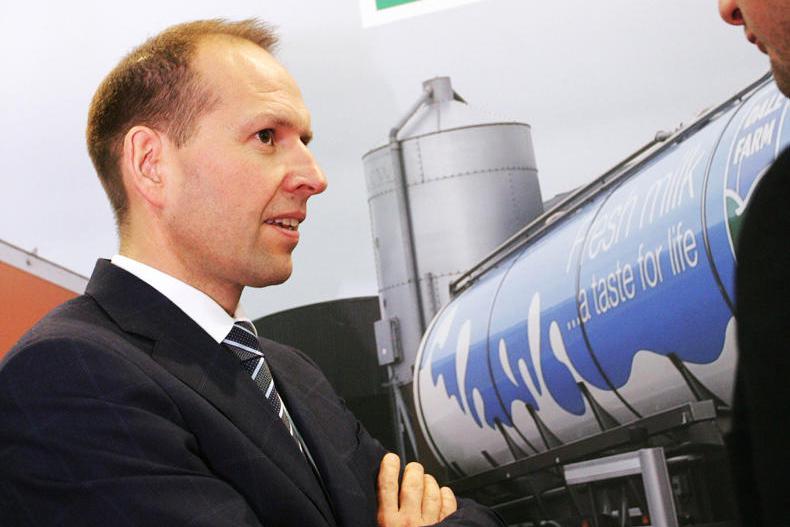There are many threats to local agriculture coming as a result of Brexit, but among local agri-food businesses, one of those best placed to take advantage of any opportunities that arise is Dale Farm.
That was the message from new Dale Farm chief, Nick Whelan, speaking at a breakfast event organised by the NI Institute of Agricultural Science (NIIAS), and sponsored by Ulster Bank and Devenish Nutrition, on the morning of last week’s Winter Fair.
He maintained that for a business such as Dale Farm, Brexit effectively arrived with the devaluation of sterling that came immediately after the vote to leave the EU.
“For us, it was a game changer. A total of 85% of our turnover is in sterling, so the currency change has been a tremendous help to our business as there is no risk to our customers,” he said.
To highlight the issue, he pointed to the 100,000t of cheese that is sold from the Republic of Ireland into the British market each year. Effectively, overnight that cheese became 15% more expensive. “It is the type of volatility that customers cannot absorb or won’t accept. The industry is working on a 3% margin, so a 15% change is massive,” said Whelan.
He maintained the result is that security of supply at low risk has replaced price as the key requirement in the UK market, with customers reacting now at a strategic level, and making five-year plans. “That presents enormous opportunities for a company based in the UK,” he suggested. Under the previous management regime, Dale Farm decided to invest in processing capacity to target the UK market with Red Tractor-assured consumer products. It is a decision that looks increasingly visionary now. Retail sales have moved from £135m in 2010 to £220m in their last accounts to March 2016, out of total group turnover of £370m.
According to Whelan, the other major selling point for customers is the family-farm structure in NI with milk supplied to the co-op by their own members, and also the ability to close the loop by supplying inputs from their feed business, United Feeds. “It is a key differentiator when speaking to customers. They are very impressed by that supply chain because it is safe,” he said.
Despite highlighting some of the positives that could come from Brexit, Whelan is also well aware that there could be major challenges ahead. For example, a free trade agreement with Commonwealth countries could see the UK become a dumping ground for excess dairy product from New Zealand and Australia.
Financial support
He is adamant that the Government must continue to provide financial support to farmers post-Brexit, as without that support it could lead to a breakdown in rural society. He also highlighted that the local agri-food industry is highly dependent on immigrant labour, and that the possible imposition of tariffs post-Brexit would have major implications for the wider agri-food industry given that around 25% of NI sales are currently to other EU countries. “Tariffs are not a barrier – they are a wall that we won’t be climbing over. A hard border in Ireland would be very damaging for the dairy industry in particular,” noted Whelan.






 This is a subscriber-only article
This is a subscriber-only article










SHARING OPTIONS: